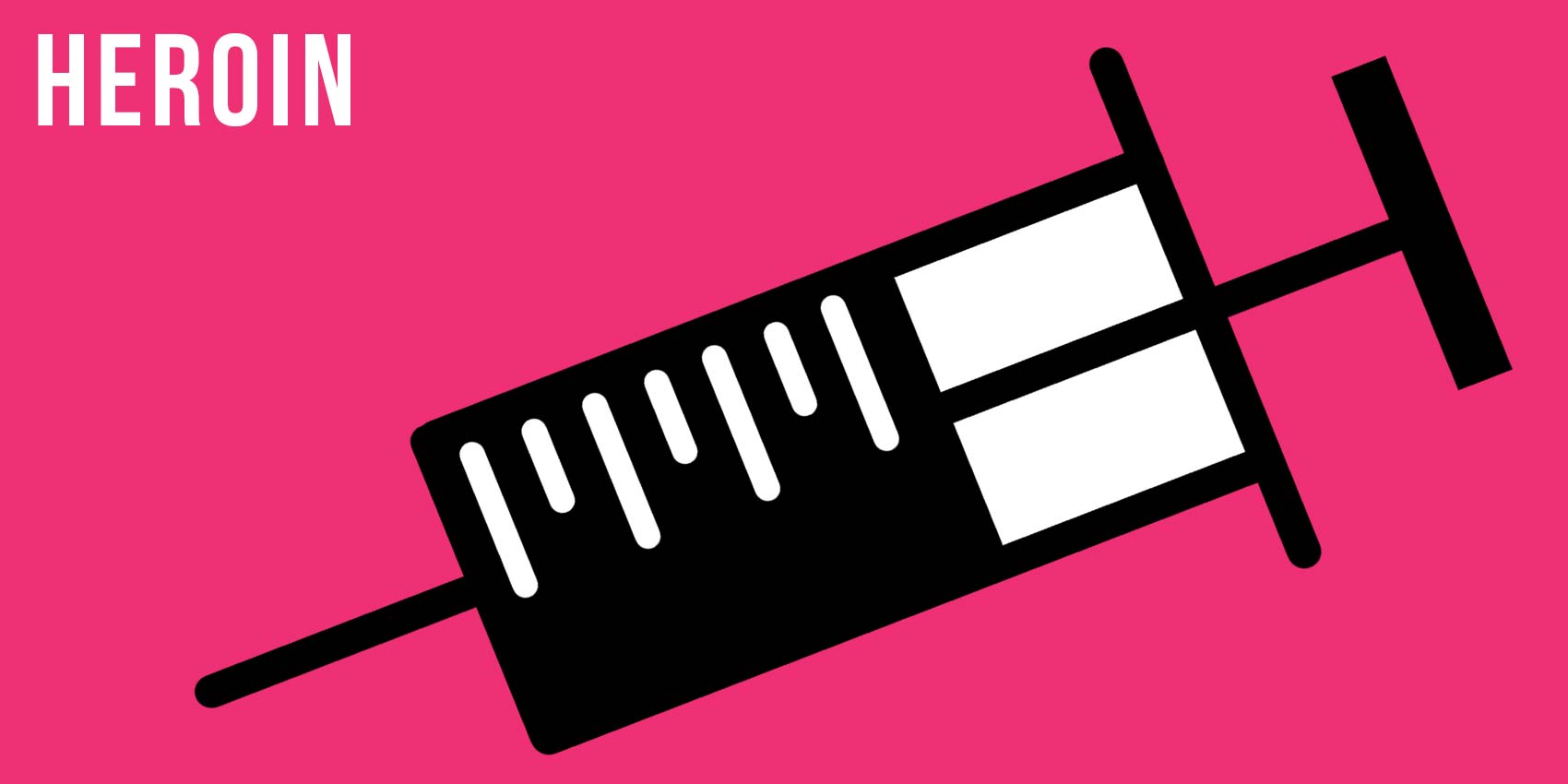31 Aug Heroin


DID YOU KNOW? The National Institute on Drug Abuse estimates that nearly one-fourth (23 percent) of people who try heroin will become addicted.
Heroin is the most common and dangerous opioid street drug. It is a depressant which is why it is so effective in numbing pain. It interferes both with the brain’s pain centers and pleasure centers. As a result, users feel a “rush” (a feeling of euphoria) upon using the drug, along with a warm flushing of the skin and a heavy feeling in their arms and legs. After this initial rush, users go into a drowsy state where their mental functioning is impaired because the central nervous system is depressed.
Heroin comes in a powdered form (and just like ecstasy, this means it can have many other substances cut into it) and can be used in a variety of ways. Often people inject heroin, therefore they need a needle. The sharing of needles among drug users is one of the main ways AIDS/HIV has spread. The use of sterile needles greatly reduces the risk of spreading disease.
ALERT!!! Heroin is mixed with other dangerous chemicals. No one can be aware of what has been added to the heroin, which is what makes it so deadly!
Long-term use of heroin causes many, many complications including collapsed veins, infections, abscesses, liver disease and breathing complications. The breathing issues stem from the fact that heroin suppresses (meaning lessens) breathing because of the opioid receptors in the brain stem (where breathing is regulated). In addition, the effects on the brain are unlimited—heroin affects the very connections that are made in the brain which can cause memory issues and decision-making problems, seizures and brain injury. Behavior and responses to stress can be impaired as well. The health of heroin users declines noticeably often causing them to succumb (meaning to give in, break down) to a wide variety of health issues that may result in death.
Withdrawal symptoms from heroin are quite profound (meaning extreme, great) and place a burden on the body. What is withdrawal? Withdrawal happens when a person stops using a substance and the body, having been altered by the use of the substance, now craves that substance in order to function properly. That craving can cause a number of severe physical and psychological reactions. Withdrawal from heroin is so intense, that people trying to give up heroin are often monitored (meaning, carefully watched) by medical professionals. Many times they need to be slowly weened off of heroin to avoid life threatening withdrawal. To slowly ween someone off something is like if you have a habit of eating 3 cookies every day and you want to stop you might slowly ween yourself off that habit by eating 2 1/2 and then 2 and then 1…. you get the idea!

DID YOU KNOW? A “hangover” from alcohol is a form of withdrawal.
Withdrawal from heroin produces HUGE drug cravings, restlessness, pain, diarrhea, vomiting, cold flashes with goose bumps (hence the term “cold turkey”), kicking movements (hence the term “kicking the habit”) and other symptoms that peak 2-3 days after last using the drug. These symptoms only go away after about a week. These symptoms are so bad that when you combine them with the usually poor health of regular users, death can occur from the withdrawal—the body is unable to recover. This is one reason people should seek medical health when trying to quit.
With withdrawal so awful and the addiction so powerful, you can imagine why so many people can’t quit. People have been known to sell their homes, their bodies, even their children for heroin. No exaggeration.




Post Question:
Name one thought and then one feeling you would have if your good friend said he or she tried heroin.
Answer the post question here
What's being said